People

The IIS is made up of staff, researchers, and scholars who bring their unique expertise and collaborative spirit to projects that help elevate our understanding of Islam and Muslims.
Staff

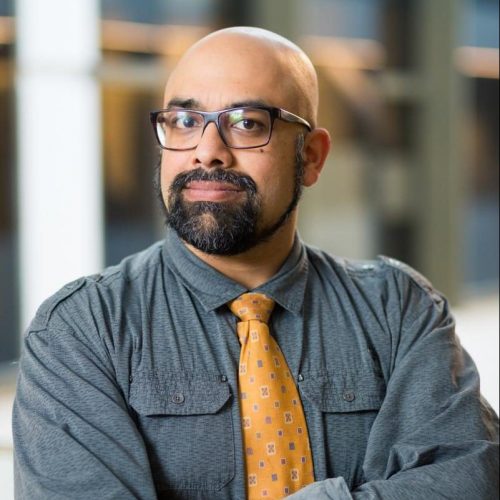
Anver Emon
Director, Institute of Islamic StudiesAnver M. Emon is Professor of Law and History and Canada Research Chair of Islamic Law and History at the University of Toronto. His research integrates a careful attention to Islamic legal history and contemporary debates on law and governance. He is director of the IIS, where he helps research teams incubate large scale research projects that have the capacity to recalibrate both academic and public debates on Islam and Muslims.
Anver M. Emon’s research centers on the study of Islamic law and history. His publications address both premodern histories of Islamic law, and how those histories are deployed in contemporary debates on governance and the rule of law at a time when the spectre of ‘Islam’ and ‘Muslim’ are highly politicized tropes in public debate around the world. A professor in both the Faculty of Law and Department of History, Emon’s teachings range from foundational courses in legal education (constitutional law and statutory interpretation), to historical methods courses that center the study of Islamic law and comparative law. He has received numerous awards and recognition for his scholarship, having been the 2014 Guggenheim Fellow in Law, appointed to the College of the Royal Society of Canada and awarded its 2017 Kitty Newman Memorial Award in Philosophy, and named a Senior Fellow to Massey College.
In addition to publishing numerous articles, Professor Emon is the author of The ‘Islamic’ Deployed: The Study of Islam in Four Registers (Middle East Law and Governance, 2019), Islamic Natural Law Theories (Oxford University Press, 2010), and Religious Pluralism and Islamic Law: Dhimmis and Others in the Empire of Law(Oxford University Press, 2012), as well as the co-editor of Islamic Law and International Human Rights Law: Searching for Common Ground? (Oxford University Press, 2012). His most recent book, Jurisdictional Exceptionalisms (Cambridge University Press, 2021), (co-authored with Urfan Khaliq) interrogates the fields of private international law and Islamic law as they impose themselves on the bodies of children abducted by parents across state borders.
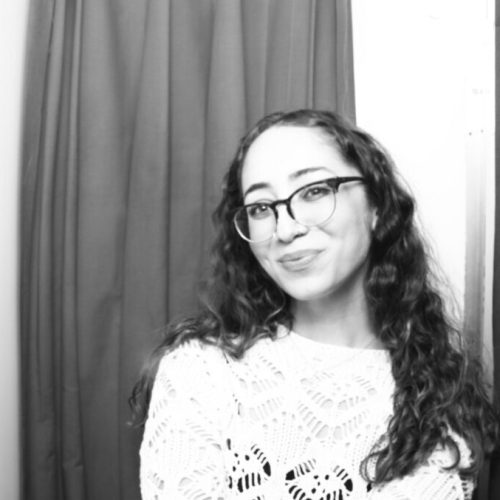
Mitra Fakhrashrafi
Archivist, Muslims in Canada ArchivesMitra Fakhrashrafi (she/her) is a curator and emerging archivist interested in creating places of sanctuary and indebted to border abolition organizing. In 2020, Mitra published a Master’s thesis on shisha ban’s, surveillance and Muslim placemaking in the Greater Toronto Area.
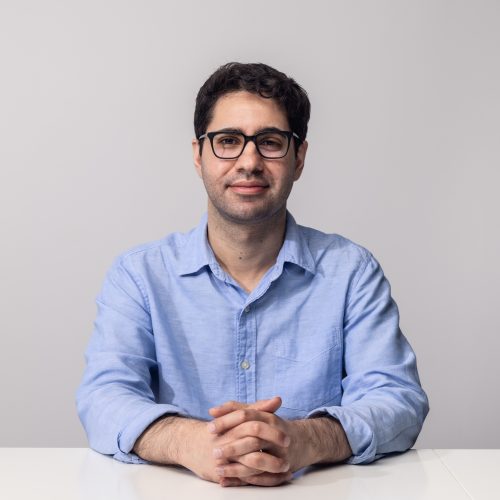
Zaid Khan
Research Officer, Institute of Islamic StudiesZaid Khan in a Research Officer at the Institute of Islamic Studies. He supports the Institute with its strategic planning, communication design, stakeholder engagement, and project management.
Zaid has a background in strategic communications in the advertising and design industry. Zaid uses design-led approaches to organize and deliver scholarly work in way that make a real world impact. He holds a Masters in Design in the Strategic Foresight & Innovation Program at OCAD University.
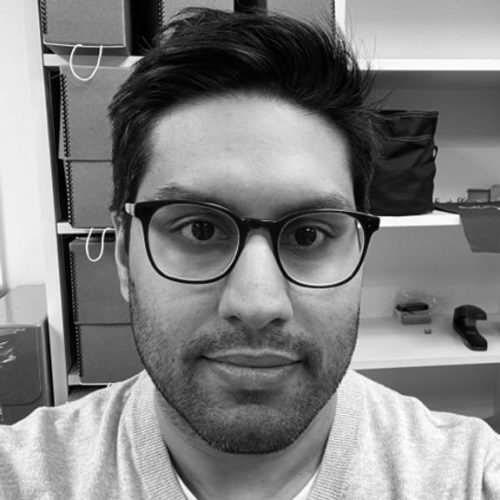
Aly Rattansi
Archivist, Muslims in Canada ArchivesAly is an archivist/chief archivist of the Muslims in Canada Archives at the University of Toronto. Previously he worked in media design, web3 and in museums and libraries. His research interests lie at the intersection of communities development and GLAM, and the study of Islam in the Americas. He holds degrees in information, the study of religion, and material culture from the University of Toronto.
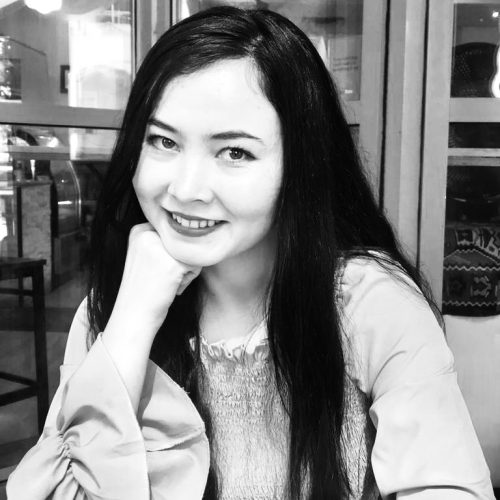
Zainab Yusofi
Administrative, Outreach, and Communications OfficerZainab Yusofi, a graduate of the University of Toronto with a Master's degree in Labor Relations and Human Resources, brings her expertise to the role of Communications and Events Specialist at IIS. With a successful track record in nonprofit organizations and a background encompassing IT management, HR processes, project coordination, and event execution, Zainab drives impactful communication strategies. Her global journey spans continents and her fluency in multiple languages further enriches her ability to foster meaningful connections and bridge cultural gaps.
Research Fellows

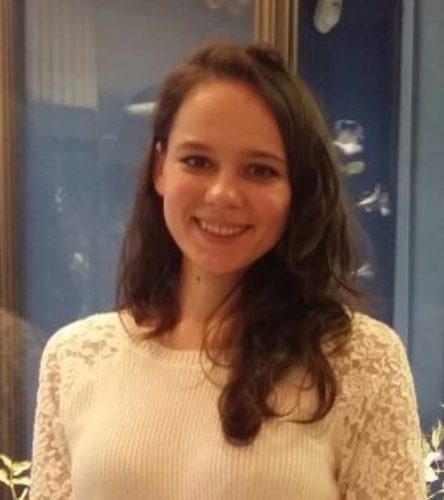
Dilyara Agisheva
Postdoctoral FellowDilyara Agisheva is a Postdoctoral Fellow at the Institute of Islamic Studies, University of Toronto. She earned her undergraduate degree in Middle Eastern Studies and Political Science at UCLA and later pursued an MA in Middle Eastern, South Asian, and African Studies at Columbia University, specializing in Islamic law and modernity.
Dilyara continued her academic journey as a Ph.D. student at Georgetown University, focusing on Islamic law and Ottoman history. Her doctoral thesis, titled “Entangled Legal Formations: Crimea Under Russian Rule in the Late Eighteenth and Early Nineteenth Centuries,” sheds light on the intricate legal dynamics of the region. Dilyara’s primary research interests include the interactions between European colonial and Islamic legal traditions in the modern period, with a specific focus on Islam in the Russian Empire and Islamic legal transformations concerning legal belonging, inheritance, legal authority, and property rights.
Currently, as a Postdoctoral Fellow, she is working on a book project based on her dissertation research, using Russian, Crimean, and Ottoman sources to trace the transformation of Islamic legal practices in Crimea following its annexation by the Russian Empire. Dilyara aims to bring greater awareness to Crimean history, particularly within the context of ongoing regional conflicts. She is actively engaged in several publication projects, including articles and encyclopedia entries, derived from her research on Crimea and Muslim communities in the Russian Empire. With her writing and academic activities at the IIS, Dilyara seeks to contribute to the ongoing dialogue on the themes of Islamic law and imperialism.

Sara Hamed
Postdoctoral FellowSara Hamed is a postdoctoral fellow at the Institute of Islamic Studies. Her research centers on the 20th-century Islamic reformer Muhammad Shahrour, exploring the transatlantic and often clandestine communities that have emerged around his contentious ideas in North America and Europe, both in-person and online.
Sara Hamed is a PhD Candidate in the Department for the Study of Religion at the University of Toronto. She holds a BA in Anthropology and an MA in Religious Studies, both from McMaster University. She is a two-time recipient of graduate level awards from the Social Sciences and Humanities Research Council (SSHRC) of Canada, and recently held a post as a graduate fellow at the R. F. Harney Program for Ethnic, Immigration and Pluralism Studies at the Munk School of Global Affairs and Public Policy.
She is also a highly rated course instructor and award-winning teaching assistant at the Department of Historical Studies at the University of Toronto, Mississauga. Her doctoral research brings debates in the anthropology of Islam about ethics and tradition to bear on Canadian Muslim aspirations in civil society, an area that is nearly untouched in the study of Islam and Muslims in Canada. Specifically, her doctoral work explores conceptions of tarbiyah as organizational practice in a context of pluralism and cultural fragmentation and the perceived role of Islamic charitable NGOs in the ethical formation of Muslims in Canada.
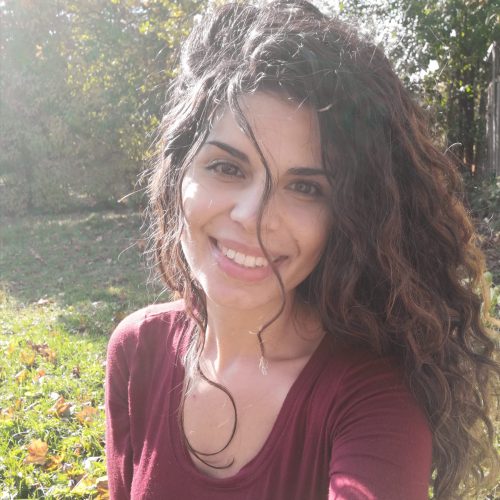
Sharifa Patel
Postdoctoral FellowSharifa Patel is a Postdoctoral Fellow at the Institute of Islamic Studies’ Structural Islamophobia Research Lab at the University of Toronto. She holds a PhD in English and Cultural Studies and an MA in Gender Studies and Feminist Research from McMaster University, and an undergraduate degree from the University of Toronto.
Sharifa’s research examines Islamophobia within Canadian policies and how these policies specifically affect Muslim families. Her dissertation research analyzed framings of the Muslim family as a space of patriarchal violence in Canadian news media and political discourses (such as House of Commons debates). In her capacity as the W. P. Bell Postdoctoral Fellow at Mount Allison University, she examined Canada’s intercountry adoption policy which restricts intercountry adoptions from countries that use the Islamic practice of kafala, arguing that the policy is inherently Islamophobic.
Her current postdoctoral project examines the understudied area of Muslim children’s and Muslim families’ relationships with Canada’s child welfare systems and focuses specifically on Muslim children in care in Ontario. Using qualitative methods, this research centers the experiences of Muslim families and Muslim children with Ontario’s child welfare system. This analysis addresses the necessity of tracking and maintaining data on Muslim children in care. As a result, the aim of this research is to also use quantitative methods to develop an archive of disaggregated data to better assess the prevalence of Islamophobia within Ontario’s child welfare system.
Sharifa is also the co-managing editor of the online, open-access journal, Feral Feminisms as well as an external associate for the Robarts Centre for Canadian Studies at York University.
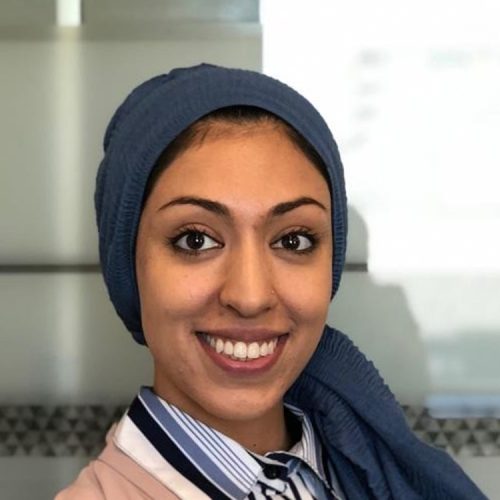
Sarah Shah
Data Team, Muslims in Canada Data InitiativeSarah Shah's research focuses on the sociology of Islam in Canada. A mixed methodologist, Shah's work highlights the intersections of gender and family relations, immigration and racialization, and mental health among Canadian Muslims.
Sarah Shah (they/them) received a doctoral degree in 2019 from The University of Toronto in Sociology. Shah’s research includes analyses of religion as it pertains to gender attitudes, family organization, mental health outcomes, and group identity. By interrogating the nuances of religiosity, including identities, practices, and approaches, Shah’s research unpacks how religion dialectically structures and is structured by gender and family relations, immigration and racialization processes, and mental health.
At the IIS, Shah is working with a team of leading researchers on the Muslims in Canada Data Initiative. This Initiative aims to address the dire lack of data on Canadian Muslims and their sociodemographic characteristics, socioeconomic outcomes, and social experiences in everyday life. Along with a robust panel of international scholars, the Initiative is supported by collaborations and partnerships with several Canadian Muslim community organizations.
Shah is cross appointed as a faculty member at the Department of Sociology, The University of Toronto Mississauga.
Institute Affiliates

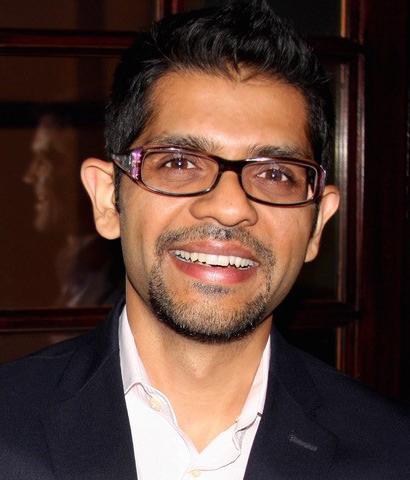
Fahad Ahmad
Advisor, Structural Islamophobia Research LabFahad Ahmad is an Assistant Professor in the Department of Criminology at Toronto Metropolitan University. He is an interdisciplinary scholar interested in national security governance, racialized policing and surveillance, civil society organizations, and the political economy of philanthropy.
Prior to joining Toronto Metropolitan University in July 2022, he was a postdoctoral research fellow at the Centre for Criminology and Sociolegal Studies at the University of Toronto. He obtained his PhD at the School of Public Policy and Administration at Carleton University. His doctoral research, supported by SSHRC and the Pierre Elliott Trudeau Foundation, comparatively examined the securitization of Muslim civil society organizations under national security regimes in Canada and the U.K. He is currently preparing a book manuscript based on his dissertation.
Fahad is an interdisciplinary scholar interested in critical terrorism/radicalization studies; racialized practices of national security policing and surveillance; civil society and resistance; and justice and community-oriented approaches to the study of philanthropy. His scholarship is informed by 15 years of work experience in community and nonprofit organizations in Canada and the U.S. His ongoing projects include work on the SSHRC Connection Grant, “Critical Reflections on Security, 9/11 and the Canadian Settler Colony,” and the SSHRC Partnership Development Grant, “Justice Philanthropy: An international Research-to-Practice Network.” He is also the co-lead for the critical national security hub housed at the Institute of Islamic Studies at the University of Toronto.

Abdie Kazemipur
Data Team, Muslims in Canada Data InitiativeDr. Abdie Kazemipur is Professor of Sociology and the Chair of Ethnic Studies at the University of Calgary.
He previously served as Stephen Jarislowsly Chair in Culture Change and Immigration at Memorial University of Newfoundland, and has been the founding director of two research data centres at the University of Lethbridge and Memorial University. His research is in two distinct areas: the socio-economic experiences of immigrants in Canada, and the socio-cultural developments in the Middle East, on which he has published eight books. His book, The Muslim Question in Canada: A Story of Segmented Integration (UBC Press, 2014), received the 2015 John Porter Excellence Award from Canadian Sociological Association. He is currently working on a new book, titled Sacred as Secular: Secularization under Theocracy in Iran. Commentaries and interviews about his works have appeared in The Globe and Mail, The Toronto Star, la Presse, Winnipeg Free Press, Vancouver Sun, Lethbridge Herald, Global TV, TVO, and Russia Today TV, among others.